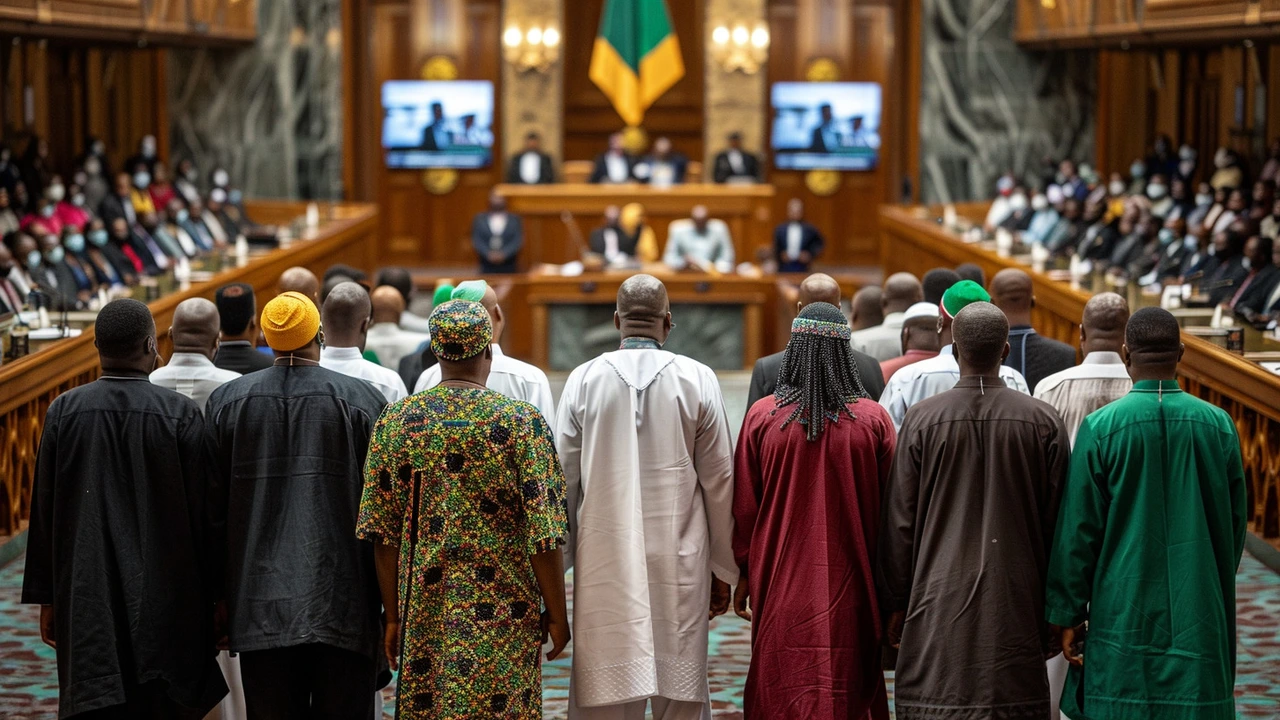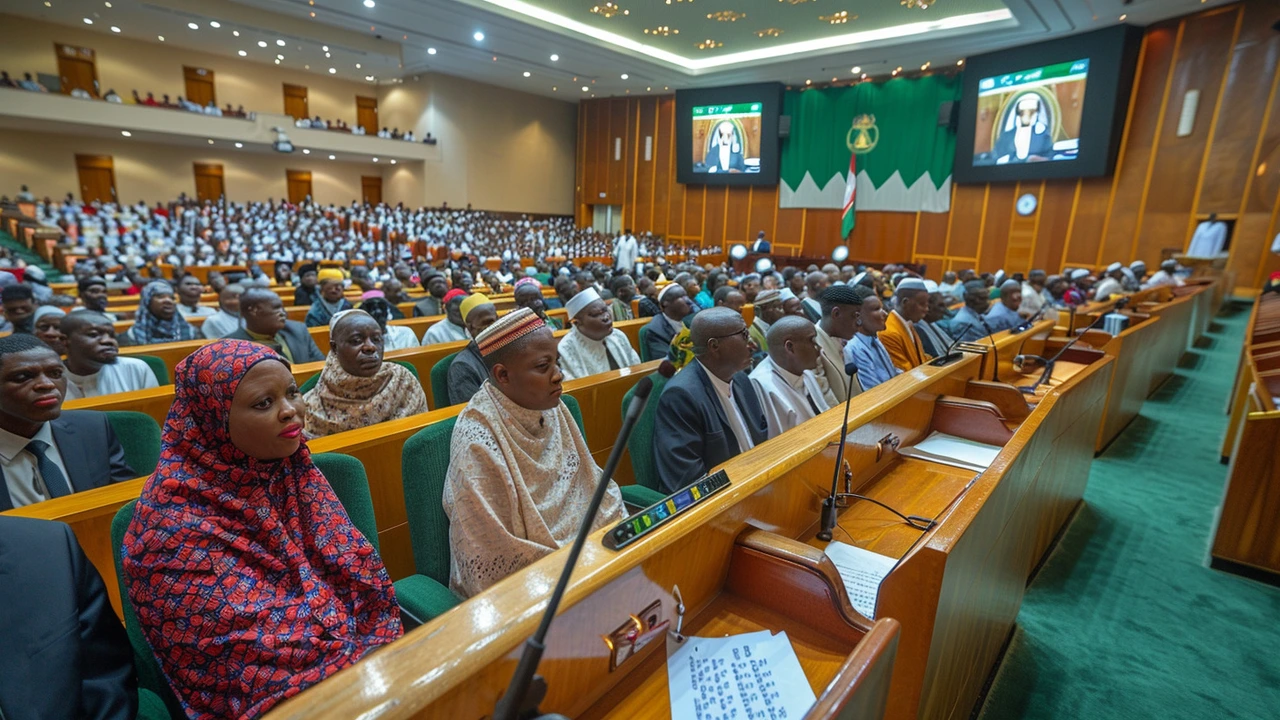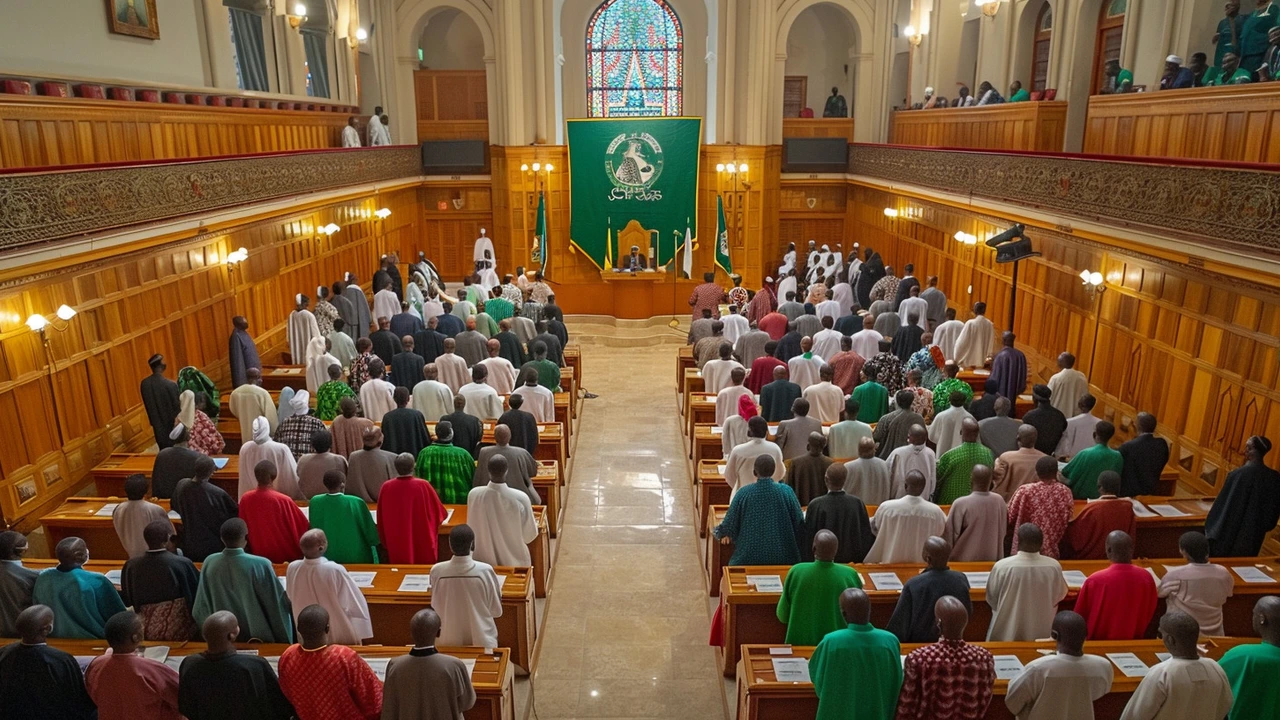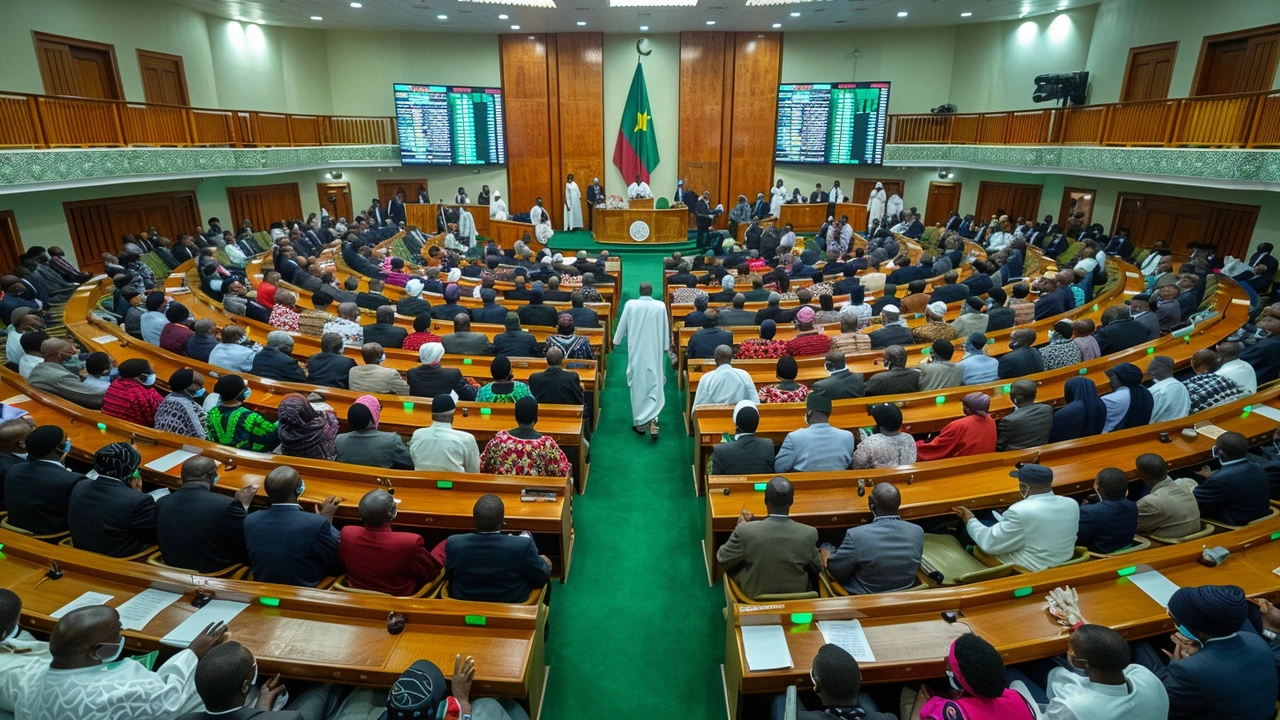Nigeria Embraces Historical Anthem in Parliamentary Session
Nigeria took a significant step back into its rich history when President Bola Tinubu signed the National Anthem Bill into law, reinstating the country’s original national anthem, 'Nigeria we hail thee.' This iconic anthem, which heralded Nigeria's independence in 1960, will replace 'Arise oh compatriots,' a song that has been etched in the collective memory of the nation since it was adopted by the military regime in 1978. The announcement, which symbolizes a return to roots, was made during a special joint session of both chambers of the National Assembly, commemorating 25 years of uninterrupted democratic governance.
The Historical Context
The change in Nigeria’s national anthem marks a momentous occasion in the country's political history. 'Nigeria we hail thee' was the original anthem of an independent Nigeria, representing the dawn of a new era when the country broke free from colonial rule. However, in 1978, the military government decided to replace it with 'Arise oh compatriots,' citing a need for a new song that could encapsulate the aspirations and the new direction of the nation at that time. The decision was met with mixed reactions from the populace but ultimately became one of many changes made by the military leaders of the era.

Unveiling the New-Old Anthem
The official announcement was made by the President of the Senate, Godswill Akpabio. As he declared the assent of the President, a collective wave of nostalgia and expectation swept through the joint session of the National Assembly. The parliamentarians, many of whom had never heard the original anthem performed as the official song of the nation, were encouraged by the Deputy Speaker, House of Representatives Benjamin Kalu, to download and familiarize themselves with the historic rendition. This move signifies not just a change of anthem but a reconnection with the core values and memories of Nigeria's foundational years.
Significance of the Change
Reverting to 'Nigeria we hail thee' is a powerful symbolic gesture by the current administration. This decision underscores the intention to honor Nigeria's rich history while moving forward. For many, especially older generations who were present during the independence era, this move evokes a deep-seated pride and a sense of nostalgia. For younger Nigerians, it presents an opportunity to connect with a significant piece of the nation's heritage, bridging generational divides and fostering unity.

Marking 25 Years of Democracy
The timing of this change is significant. The announcement was made during the celebration of 25 years of unbroken democracy in Nigeria, a milestone that is deserving of reflection and recognition. It is a poignant reminder of how far the nation has come since the dark days of military rule and highlights the resilience and dedication of Nigerians to democratic principles and governance. The reintroduction of the original anthem adds a layer of solemnity and honor to this milestone, emphasizing the importance of remembering and respecting the journey that has led to the current democratic era.
Public Reception
The public’s reaction to the news has been mixed. On one hand, older generations who remember the original anthem have expressed a deep sense of pride and nostalgia. On the other hand, younger Nigerians, who have grown up with 'Arise oh compatriots,' might take some time to adjust to the new-old anthem. Social media platforms have been abuzz with discussions, debates, and celebrations regarding the change. Many citizens are taking to the internet to share their thoughts, memories, and experiences related to both anthems, creating a rich tapestry of national sentiment.

Conclusion
In conclusion, the reinstatement of 'Nigeria we hail thee' is more than just a change in lyrics and melody; it's a profound nod to the past, a bridge to the present, and a beacon for the future. As Nigeria continues to forge ahead on its path of progress and development, this anthem will serve as a reminder of the resilience, unity, and enduring spirit of the Nigerian people. It will be fascinating to see how this change influences national pride, identity, and the collective memory of the nation in the years to come.


Hartwell Moshier
Nice move good for the nation